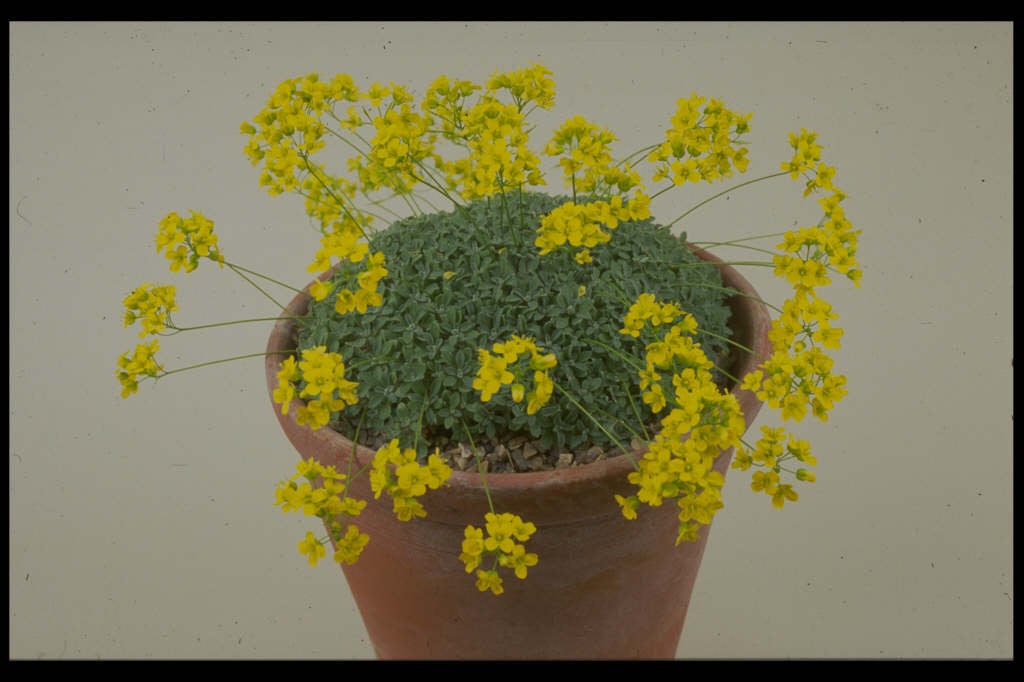Draba longisiliqua
long-podded whitlow grass
A cushion-forming evergreen perennial to 8cm in height, with dense rosettes of grey-hairy, obovate leaves and bright yellow flowers 10mm across borne in short racemes on slender stems just above the foliage

Buy this plant
Size
Ultimate height
Up to 10cmTime to ultimate height
5–10 yearsUltimate spread
0.1–0.5 metresGrowing conditions
Moisture
Well–drainedpH
Acid, Alkaline, NeutralColour & scent
| Stem | Flower | Foliage | Fruit | |
| Spring | Yellow | Green Grey Silver | ||
|---|---|---|---|---|
| Summer | Green Grey Silver | |||
| Autumn | Green Grey Silver | |||
| Winter | Green Grey Silver |
Position
- Full sun
Aspect
South–facing or East–facing
Exposure
Exposed Hardiness
H5Botanical details
- Family
- Brassicaceae
- Native to GB / Ireland
- No
- Foliage
- Evergreen
- Habit
- Matforming
- Genus
Draba can be annuals or evergreen perennials, with rosettes of small leaves forming compact cushions or mats, and short racemes of small, 4-petalled flowers in spring or early summer
- Name status
Correct
- Plant range
- Caucasus
How to grow
Cultivation
Grow in gritty, moist but very well-drained soil in full sun. Protect from winter wet and water carefully to avoid wetting the foliage. Usually grown in rock garden or scree, or in pots in an alpine house
Propagation
Propagate by seed sown in an open frame in autumn; they need exposure to cold to germinate. Propagate by rooting rosettes in late spring
Suggested planting locations and garden types
- Patio and container plants
- Rock garden
- Gravel garden
Pruning
No pruning required
Pests
May be susceptible to aphids and glasshouse red spider mite when grown under glass
Diseases
Generally disease-free
Get involved
The Royal Horticultural Society is the UK’s leading gardening charity. We aim to enrich everyone’s life through plants, and make the UK a greener and more beautiful place.